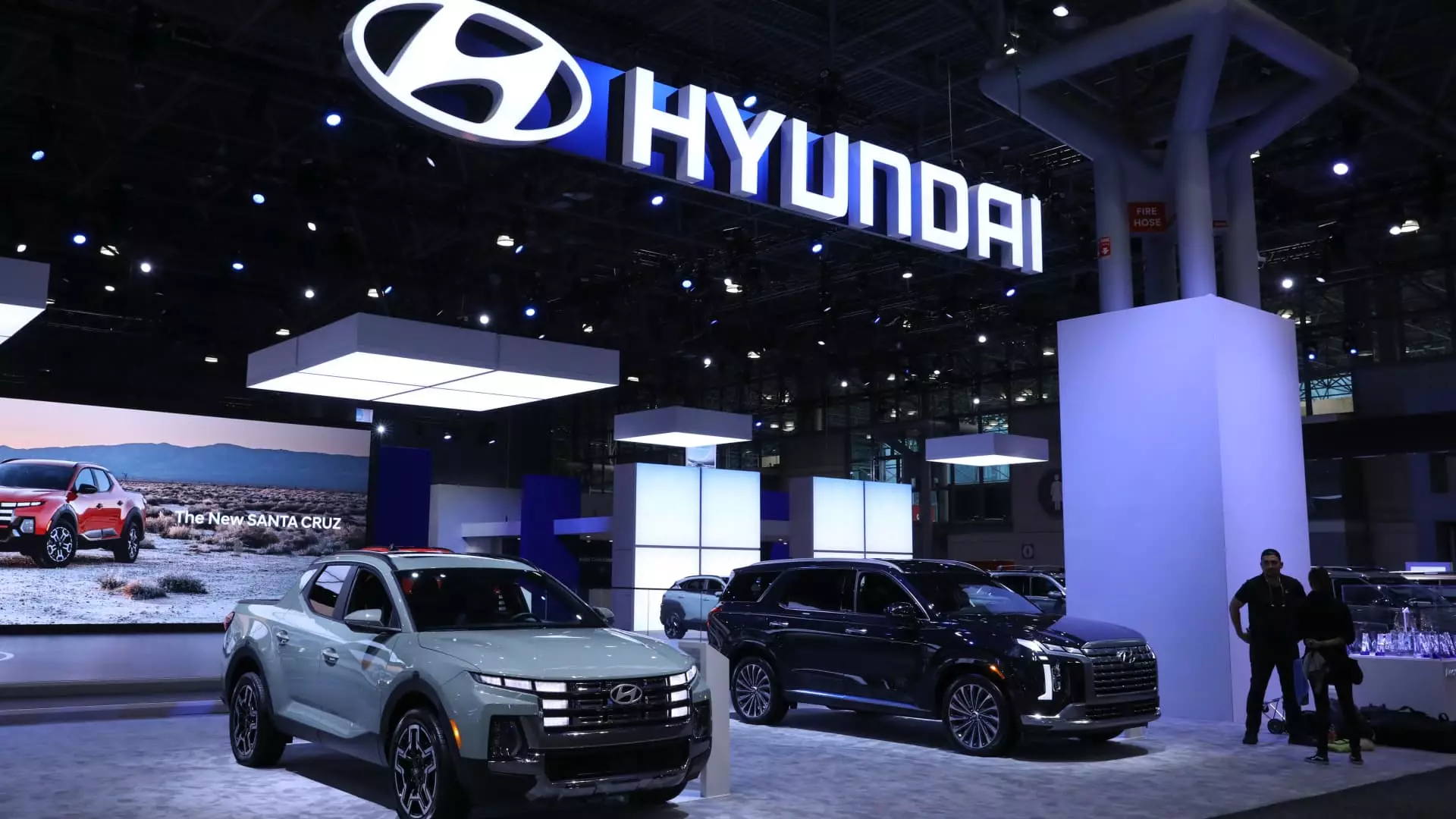In a bold stride indicative of shifting global economics, South Korean giant Hyundai is set to unveil a staggering $20 billion investment in the United States. Central to this plan is a $5 billion steel plant in Louisiana, which promises to create approximately 1,500 jobs. This investment is not merely another corporate venture; it represents a strategic pivot in response to the evolving landscape of international trade characterized by tariffs and potential trade wars. Hyundai’s decision to establish a state-of-the-art facility for next-generation steel serves dual purposes: it enhances their supply chain and positions the company favorably against competitors such as Tesla in the electric vehicle market.
Navigating Tariffs with Localization
Hyundai’s Chief Executive José Muñoz recently articulated a crucial component of their strategy, asserting that the path forward in navigating tariff challenges lies in increasing localization. This approach serves not only as a shield against unpredictable tariffs but also strengthens Hyundai’s operational footprint in the U.S., thereby contributing to the local economy. The onshoring initiative, which also reflects a broader trend among major international firms, echoes sentiments of economic nationalism that have gained traction under the current administration. The proactive positioning of Hyundai aligns with the tangible pressures faced by global corporations to optimize their supply chains and mitigate risks associated with geopolitical tensions.
Competing in the Electric Vehicle Arena
As one of the top contenders in the electric vehicle sector in the U.S., Hyundai faces intense competition, notably from industry leader Tesla. By fortifying its operational capabilities on American soil, Hyundai not only cements its market position but also capitalizes on the growing demand for green technology. With two existing plants in Alabama and Georgia, the establishment of a third plant in Georgia further amplifies Hyundai’s manufacturing prowess, ensuring a more robust capacity to meet the surging demand for electric vehicles.
The Trade Dynamics at Play
Hyundai’s aggressive investment strategy does not unfold in a vacuum but rather amidst a fraught trade relationship between the U.S. and South Korea. There’s an intricate dance of tariffs and trade imbalances—President Trump has noted that South Korea’s tariffs on U.S. imports are four times higher than those of the U.S. However, Seoul refutes this notion, highlighting the effective tariff rate on U.S. imports as being around 0.79% due to their free trade agreement. This discrepancy showcases the complexities of trade negotiations, further amplified by the urgent need for companies like Hyundai to adapt swiftly to government policies and international relations.
A Reflection of the Future of Global Business
Hyundai’s monumental investment signifies more than just corporate ambition; it mirrors the seismic shifts in global business practices where localization is no longer a suggestion but a necessity. As the manufacturing landscape evolves, companies that prioritize onshoring and local job creation will likely not only weather economic storms but emerge as leaders in their respective fields. The convergence of technological innovation, environmental responsibility, and strategic economic planning encapsulated in Hyundai’s decision marks a pivotal moment, setting a precedent for othert multinational corporations looking to thrive in an increasingly unpredictable trading environment.

